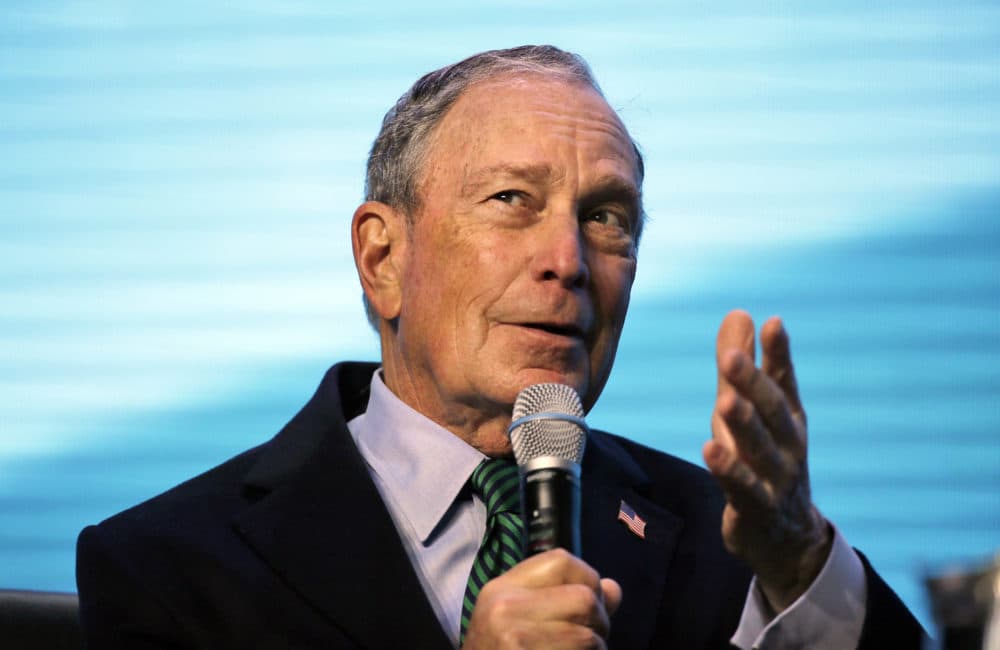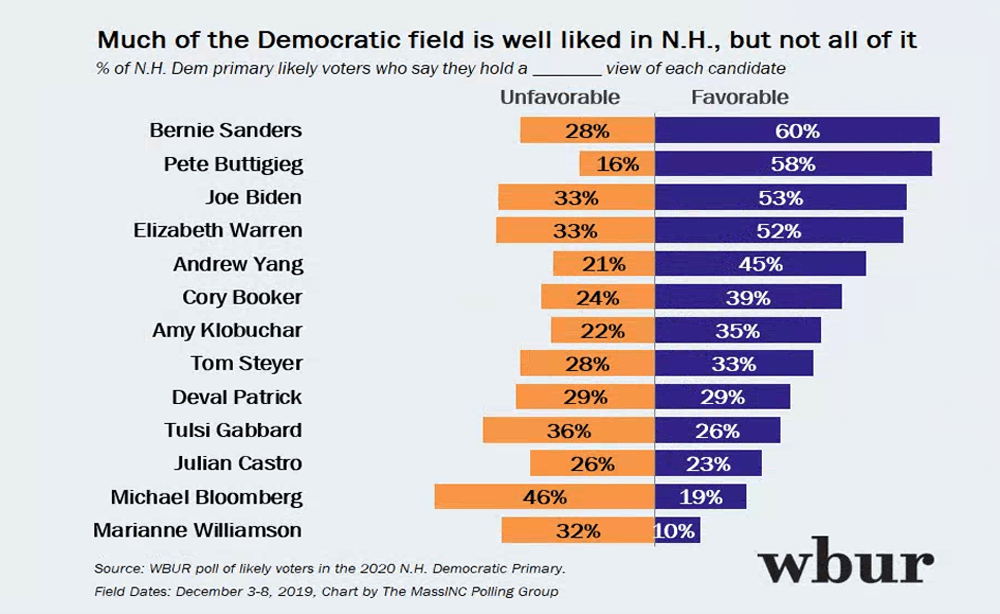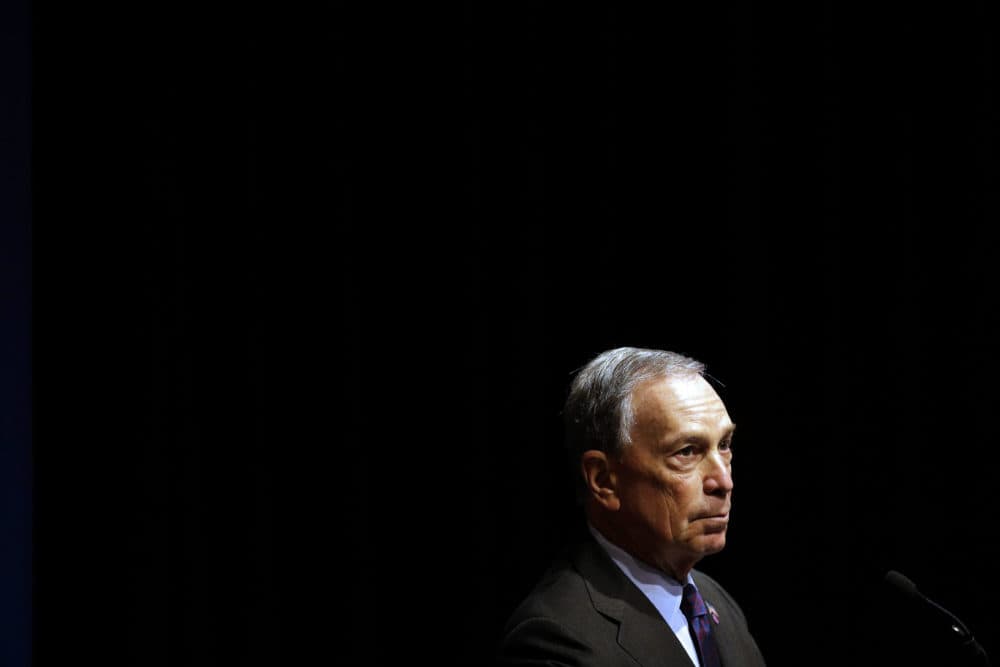Advertisement
Analysis: Bloomberg Isn't Campaigning In N.H., And The State’s Voters Seem OK With That

Novelty is not enough to draw voters to the nascent campaign of former New York City Mayor Michael Bloomberg. He stands ready to bury the voting public in piles of his own money. And a recent WBUR poll (topline results, crosstabs) shows that may be necessary to boost his image.
The survey of likely voters in New Hampshire finds Bloomberg the least popular of any candidate currently in the race. In a relatively well-liked field of Democrat contenders, Bloomberg stands out — and not in a good way.
Only 19% of Democratic N.H. primary voters have a favorable view of the billionaire, while 46% view him unfavorably. This -27 “net favorability” rating is the worst in the field. Bloomberg’s campaign is skipping the Granite State, but even that does not explain his dismal numbers. And they are just as bad elsewhere.

Recent national polls from Monmouth University (-28 net favorability) and Quinnipiac University (-19) also found Bloomberg deep underwater.
Quinnipiac, which has been tracking Bloomberg since 2016, found the 20% of people who view him favorably have not wavered in their approval over the years. However, his unfavorables have risen from 25% to 40%.
In other words, the more voters heard about Bloomberg, the more they disliked him.
Digging deeper into the WBUR poll, Bloomberg is underwater by double-digits in every demographic group. Among voters under 30, just 9% view him as favorable, while 47% hold an unfavorable view. His best voters, those over 60 years old, are still more likely to view him unfavorably by a 16-point margin.
When it comes to support, Bloomberg has quite a bit of company in the back of the pack. Overall, 2% of voters say they would vote for him. But many of the other candidates polling in the 0-3% range still engender warm feelings from voters. Amy Klobuchar (+13 net favorables), Cory Booker (+15), and Andrew Yang (+23) can say that more voters like them than dislike them, even if few say they are going to vote for them as of now.
Advertisement
He could afford to hire every strategist and staffer, run every ad, send every mailer, take every poll, and buy out the data infrastructure of every 2016 campaign. Everywhere. And then he could do it again several times over.
Bloomberg has one advantage, however, and that’s a veritable mountain of money. With a net worth of $55 billion, Bloomberg could match what every 2016 candidate for president and Congress, as well as every super PAC, spent on the whole 2016 campaign ($8.6 billion) and still have enough to scrape by. He could afford to hire every strategist and staffer, run every ad, send every mailer, take every poll, and buy out the data infrastructure of every 2016 campaign. Everywhere. And then he could do it again several times over.
Bloomberg and his fellow billionaire Tom Steyer have the resources to stay in the race for the long haul. But they will have to convince Democratic voters to overcome deep suspicions regarding the effect of money in politics during a time of record-level income inequality and wealth concentration.
Steyer's somewhat better +5 net favorability also suggests that Bloomberg's negative ratings are not only about his wealth.

If Bloomberg does clear the primary, Democratic voters may be persuaded to support a candidate that can put up vast personal resources against a Trump campaign that has been raising (and spending) millions.
The same Quinnipiac poll that had Bloomberg with low favorables nationally also had him beating Trump head-to-head by 6 points. That likely says more about Trump than his opponent, as six Democrats held leads over the incumbent.
Bloomberg is playing a different game than the other candidates, and that means forfeiting New Hampshire. New Hampshire voters seem to be saying good riddance. The question is, as Bloomberg flies around Super Tuesday states spending and spending, can money buy him love?
